Data-Driven
Large-Scale
Multi-Omics
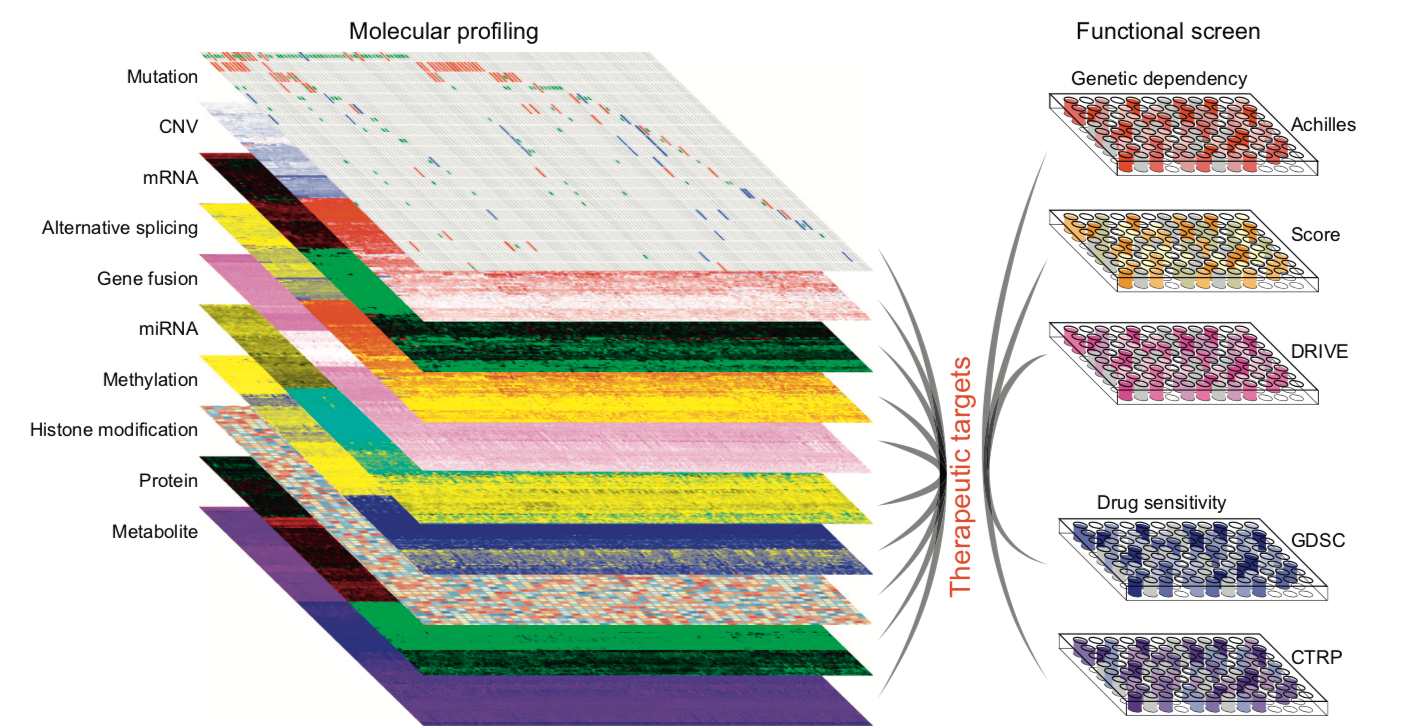
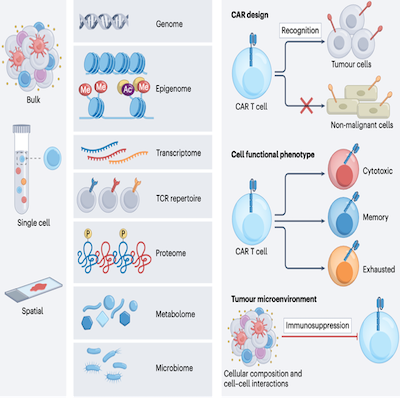
Immunotherapy
Uncovering important mechanisms underlying immunotherapy via big data analysis
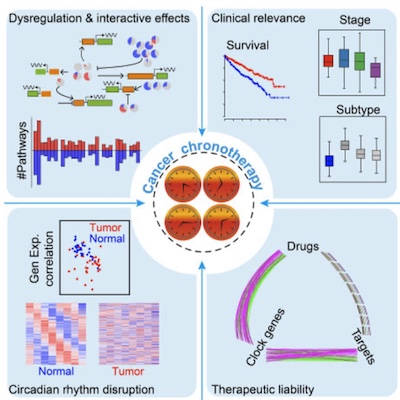
Pan-cancer Analyses
A series of pan-cancer analyses to provide clinical insights into cancer therapy
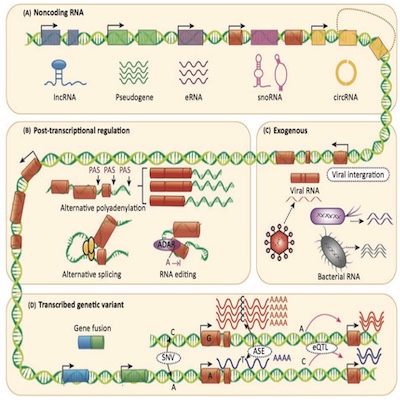
Transcriptomics Elements
Comprehensive understanding of the molecular mechanisms of novel transcriptomic elements in cancer
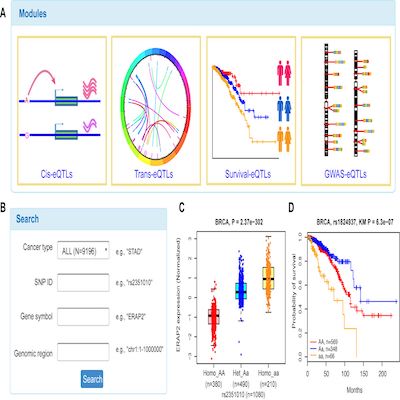
Data Resources
Widely used data resources for the broad biomedical community
Research Summary
Recent advances in genomic characterization technologies and the explosive genomic information related to disease have accelerated the convergence of discovery science with clinical medicine. Successful translations of genomics into therapeutics and diagnostics reinforce its potential for precision medicine. Analyses of multi-dimensional data provide unique opportunities to understand biological processes and signaling pathways. We aim to utilize cutting-edge techniques in computational biology, RNA biology, and systems biology to identify novel prognostic and diagnostic biomarkers and to develop innovative therapeutic strategies. Our lab utilizes cutting-edge techniques in systems biology to understand the molecular mechanisms of complex diseases
- Immunotherapy
With substantial resources devoted to clinical trials and drug development in immunooncology, big data analysis has the potential to uncover important mechanisms underlying immunotherapy and, in turn, offer novel insights for their clinical management in immunotherapy (NatureImmunology, 2019; Nature Communications, 2020a; Nature Communications, 2020b; JNCI, 2021; Cancer Cell, 2021; Cancer Cell, 2022; Cancer Research, 2022a; Cancer Research, 2022b; Nature Communications, 2022; Journal for Immunotherapy of Cancer, 2022; Nature Reviews Clinical Oncology, 2022; Nature Reviews Clinical Oncology, 2023; Cell metabolism, 2023). - Pan-cancer analyses
We pioneered a series of pan-cancer analyses to provide clinical insights into cancer therapy, including chronotherapy (Cell Systems, 2018) and targeted therapy (Nature Metabolism, 2019; Genome Medicine, 2020a; Genome Medicine, 2020b; Nature Communications, 2022). - Transcriptomic elements
We have comprehensive understanding of the molecular mechanisms of novel transcriptomic elements in cancer (Trends in Cancer, 2018), including eQTL (Nucleic Acids Research, 2018), snoRNA (Cell Reports, 2017; Molecular Cancer, 2020), APA (Journal of the National Cancer Institute, 2018; Cancer Research, 2022), circRNA (Genome Medicine, 2019a; Genome Medicine, 2019b) and eRNA (Nature Communications, 2019; Cancer Research, 2022). - Data Resources
It is challenging to facilitate the utilization of large-scale data by the broad biomedical community without computational background. Our group developed several widely used data resources, including LNCediting (Nucleic Acids Research, 2016), CSCD (Nucleic Acids Research, 2017), PancanQTL (Nucleic Acids Research, 2017), Pancan-meQTL (Nucleic Acids Research, 2018), tRic (RNA Biology, 2019), APAatlas (Nucleic Acids Research, 2020), GPSno (Molecular Cancer, 2020), CSCD2 (Nucleic Acids Research, 2020), GPEdit (Nucleic Acids Research, 2020), GPIeR (Cancer Research, 2022). These databases provided valuable resources for the research community to further perform functional investigations. We will further develop related data resources for various types of complex diseases to accelerate the investigations in biomedical research.
We have been invited to contribute review, commentary and spotlight by multiple journals, including Nature Reviews Clinical Oncology, Nature Biotechnology, Nature Metabolism, Trends in Genetics, Trends in Cancer, Trends in Molecular Medicine, Genome Medicine, and Oncogene. To date, we have published >170 peer-reviewed papers, with a total of > 23,000 citations (Google scholar, H-index = 64). Top impact factor journals include: Nature, Nature Reviews Clinical Oncology, Nature Immunology, Nature Metabolism, Nature Genetics, Nature Biotechnology, Nature Cell Biology, Nature Communications, Cell, Cancer Cell, Cell Stem Cell, Molecular Cell, Cell Systems, Cell Reports, Science, Science Translational Medicine, Nucleic Acids Research, Journal of Clinical Investigation, JNCI, Genome Biology, Genome Medicine, Genome Research. Our long-term goal is to revolutionize the precision medicine to achieve better treatment efficacy that will reduce patient morbidity and mortality.